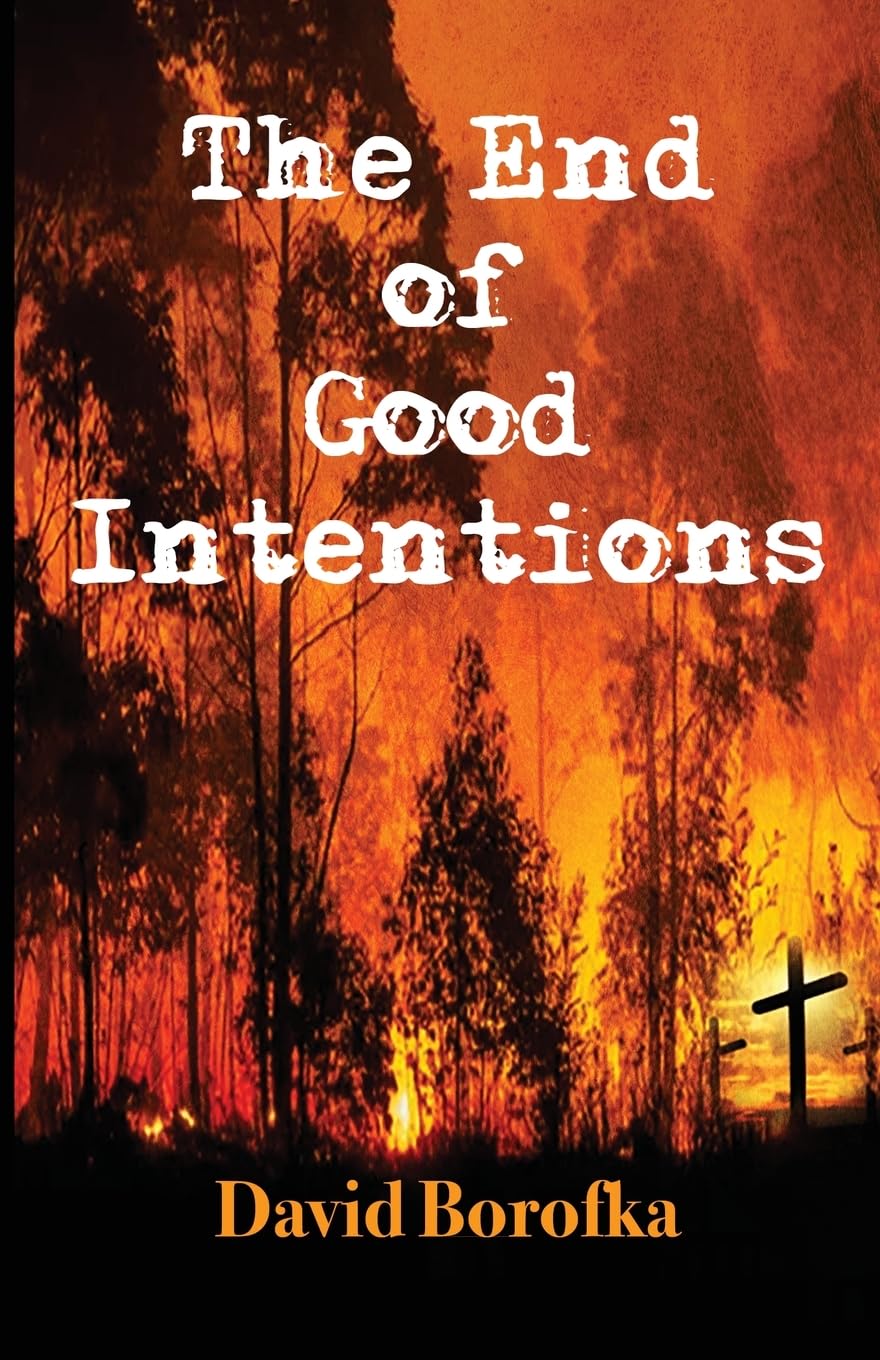Reviewed by Nancy Spiller
The End of Good Intentions
by David Borofka
Fomite
September 2023, Paperback, 458 pages, ISBN-13: 978-1953236913
In David Borofka’s novel, The End of Good Intentions, the author delves deep into the complexities of faith, belief, and extremism. Borofka’s compelling narrative explores the intertwining lives of a diverse array of characters, offering a thought-provoking commentary on the evolution of religious ideologies in American society from the 1970s to the present day.
Having been a fan of Borofka’s previous work, A Longing For Impossible Things, I found the novel’s exploration of faith and religious fervor particularly compelling. Borofka skillfully navigates the nuanced beliefs of both fervently religious individuals and those less devout, providing a granular portrayal of the paths that have led some to embrace evangelical extremism, while others have distanced themselves from religious institutions altogether.
Against the backdrop of American history and culture, Borofka offers a multi-dimensional view of the impact of religious fervor, from the age of progressive Protestantism to the rise of right-wing evangelicalism. The novel encourages readers to draw their own conclusions while avoiding any overtly polarizing or extremist narrative.
The book prompts a reconsideration of evangelical communities, challenging stereotypes perpetuated by the media and urging a more cautious reflection on the political implications of religious affiliations. Through the characters’ experiences, the novel sheds light on the potential influence of conservative religious groups on political landscapes, particularly in relation to issues such as gender equality and LGBTQ+ rights.
Centered around the lives of two cousins who take their religious zeal to dangerous extremes, the novel weaves a rich tapestry of interconnected stories, spanning significant historical events such as 9/11 and their aftermath. The narrative’s complexity is reminiscent of literary works like Doctorow’s Ragtime, offering a sprawling and impactful portrayal of interconnected lives and their consequences.
The transformation of Sierra Presbyterian College into Liberty Christian College serves as a poignant symbol of the shift from progressive, liberal values to conservative evangelical fervor. The characters’ affiliations with the college provide a lens through which to examine the deeper implications of this ideological transition, highlighting the societal and cultural shifts that accompany such changes.
Borofka’s portrayal of the characters, including a closeted gay professor, a conflicted college counselor, and a guilt-ridden Jewish woman, offers a diverse and empathetic exploration of their experiences and struggles. Each character, no matter how seemingly inconsequential, is given a moment in the spotlight, contributing to the intricate and multi-layered narrative.
Ultimately, The End of Good Intentions delivers a powerful message about the interconnectedness of actions and the far-reaching impact of belief systems on individuals and society at large. Through a cast of vivid and memorable characters, Borofka provides a compelling examination of the evolving landscape of religious faith and its implications.
About the reviewer: Nancy Spiller is a writer, artist and educator living on Los Angeles’ wild western edge. She is the author of: Compromise Cake: Lessons Learned from My Mother’s Recipe Box. and Entertaining Disasters: A Novel (With Recipes)and teaches creative writing for the UCLA Extension Writers’ Program. This March 2-3 she’ll be teaching Words and Pictures: Weekend Workshop in Creative Writing From Visual Art on Zoom. The link for more info or to enroll is: https://www.uclaextension.edu/writing-journalism/creative-writing/course/words-and-pictures-weekend-workshop-creative-writing
More can be found at http://nancyspiller.org.




